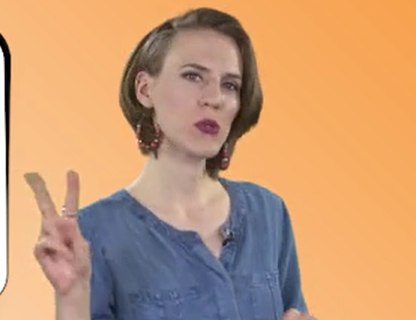(单词翻译:单击)
This is Everyday Grammar. I'm Lucija.
欢迎收看《每日语法》栏目,我是露西佳。
I'm Looking Forward To this episode.
我很期待本期节目。
And I'm Kaveh. I Came Up With the topic.
我是卡维,我想到的这个话题。
No you didn't! Don't try to Get Away With saying you were the mastermind behind this awesome topic.
不,不是你!别侥幸说你是这个极好话题背后的策划者。
Ok, why don't we Get on With the lesson, since we don't have much time.
好吧,既然我们没有太多时间,为什么不继续上课呢?
Plus, we get along really well, so I don't want to fight. Friends? Friends.
另外,我们相处得很好,我不想打架。是朋友吗?是朋友!

Three-part Phrasal Verbs are idiomatic expressions that have one verb and two particles.
三词动词短语是一种习惯表达,有一个动词和两个介词。
A particle is a word that must appear with another word to creat meaning.
介词必须与另一个单词一起才有意义。
Like, Look Forward To, Verb+particle+particle.
比如,Look Forward To,动词+介词+介词。
Three-part Phrasal Verbs are useful when you are trying to express yourself in a natural way without being too wordy.
当你试图用一种不太冗长的自然方式表达自己时,三词动词短语很有用。
But you have to remember a couple of things about Three-part Phrasal Verbs.
但是你要记住三词动词短语的几个要点:
1. They are inseparable. No part of speech can separate them.
1. 它们分不开。说话的任何部分都不能把它们分开。
2. Changing any part of the three-part phrasal verbs changes its meaning.
2. 改变三词动词短语的任何部分都会改变它的意思。
Catch Up To has a different meaning than Catch Up On. So be careful.
Catch Up To与Catch Up On的意思不同。所以要小心。
3. Be aware that Three-part Phrasal Verbs in American English might have a different meaning from the same phrasal verbs in British English.
3. 请注意,美式英语中的三词动词短语可能与英式英语中的同一短语意思不同。
Here are the meanings of the Three-part Phrasal Verbs we used today:
下面是我们今天使用的三词动词短语的意思:


